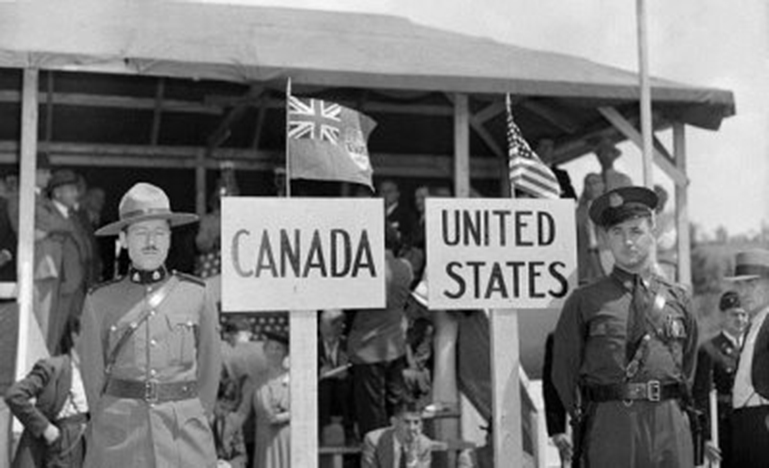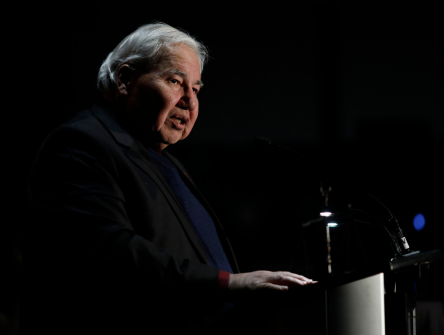No privilege at the border
Why we must set a policy on solicitor-client privilege claims made when crossing the border.

Cyndee Todgham Cherniak is a Game of Thrones fan. So when she’s talking about how lawyers get treated when they’re crossing the Canada-U.S. border, her imagery tends toward the medieval.
“It’s a question of who you open the gate to, whether you search them first or wait until they’re within the castle walls, and what rights they have once they’re inside,” says Todgham Cherniak, customs law specialist and founder of LexSage, a boutique international trade law and sales tax firm in Toronto.
What amazes her is how little many Canadian lawyers know about the power border officials on both sides have to seize documents covered by solicitor-client privilege. As chair of the Canadian Bar Association’s Commodity Tax, Customs and Trade Section, Todgham Cherniak put forward a motion at the CBA’s annual meeting in August to launch a working group with the federal government to set a policy on solicitor-client privilege claims made when crossing the border into Canada. She’s expecting a meeting with Justice officials in early 2014.
“Believe it or not, most of the lawyers in the room when we were debating this weren’t even aware that customs officials could do that,” she says. “We all travel with laptops — few of us even work on desktop computers anymore. We even take them on vacation. And those laptops have a lot of sensitive electronic documentation on them.”
Borders are strange places; the rules are different there. The Supreme Court of Canada recently tightened the conditions for police examination of computers during warrant searches — but lawyers crossing the border into Canada have no legal right whatsoever to claim solicitor-client privilege over any document they might be carrying, whether paper or electronic.
Section 99 of the Customs Act gives Canadian border officials broad powers to examine any ‘good’ a traveller tries to bring into Canada — that includes laptops, tablets and smartphones, and there’s no exemption for documents that would be covered by solicitor-client privilege anywhere else.
“They can stick a USB key into your laptop and download everything,” says Todgham Cherniak. “And once they get it, you have no way of knowing what they’re going to do with it. There’s no legal mechanism to force them to destroy the documents. Which is why we need a procedure.”
Oddly enough, the rules on solicitor-client privilege for lawyers travelling in the other direction are more advanced — if somewhat murkier. A 2009 U.S. Department of Homeland Security Privacy Impact paper says that, while legal materials are not “exempt” from examination, if an Immigration and Customs Enforcement officer suspects a legal document might (for example) be linked to a crime, and the lawyer asserts privilege over it, the officer must contact “the ICE Office of the Chief Counsel or the appropriate U.S. Attorney's Office … before beginning or continuing a search of the document …” It’s not an appeals process, but it’s better than nothing.
“What happens is those documents are turned over to what’s called a ‘taint’ attorney, who looks at the documents and determines whether privilege applies,” says Susan Kohn Ross, a partner at the Los Angeles office of Mitchell, Silberberg and Knupp LLP specializing in customs and international trade.
“Lawyers usually don’t get hassled at the border. Obviously, if you’re stupid enough to try to cross the border with a whole lot of drugs in your briefcase, you can expect everything else you’re carrying with you to be inspected.”
Things go wrong, of course, and a lawyer working on a high-stakes merger deal might not be comforted by a customs officer’s vows of confidentiality. “Border officials always say the information won’t go any further. That’s great — Wikileaks says different,” says Joel Guberman, a partner at Guberman Garson in Toronto and a specialist in immigration law.
The stakes can be very high — even career-crippling, says Heather Segal, Guberman’s partner at Guberman Garson. “By the time you cross the border you’re on U.S. soil. Arguably, you do have to answer the questions you’re asked,” she says.
“Could you say, ‘I don’t want to go (to my U.S. destination) now?’ Sure. Does that mean you don’t have to answer questions? It depends on where you want this thing to go. They can detain you.”
They can also move for “expedited removal,” barring you from working in the United States for a period of years — or forever. “If you want to talk about vehicles for duress, how about being permanently barred from the United States for material misrepresentation?” says Segal. “That’s a possibility. You don’t want to go there.”
Fortunately, it’s fairly easy to maintain privilege without inviting the wrath of U.S. border officials. The simplest approach? Don’t drive — fly.
“You’re required at the airport to answer all questions prior to boarding a cross-border flight,” says Guberman. “But you do have the right to say, ‘No, I’ve changed my mind, I no longer want to enter the United States.’ And you can walk away. A lot of people don’t know that.
“You can’t do that at a land point of entry because, by the time they’re questioning you, you’re already on their side of the border.”
Better still, says Segal, don’t cross the border with anything on your person you wouldn’t want a border official to see. “Don’t be an idiot, in other words,” she says.
One easy option is to store the document in the “cloud,” where it’s password-accessible when you want it but not stored on the hard drive.
“Until you make the decision to access it, here’s nothing there — and there’s nothing illegal about it,” says Guberman.
If you do get questioned at the border about documents covered by privilege, says Segal, it pays to have a prior arrangement with your client laying out what you’re willing to disclose.
“’What are you doing here?’ That’s a perfectly legitimate question. ‘Who’s your client?’ To that, you can say, ‘I’m not at liberty to tell you.’ That’s an instance where you might want to have a letter from your client spelling out what you’re in the U.S. to do.”
And remember: You always have the option of asking to speak to a supervisor. Kicking it up the ladder is a last resort — but it may spell the difference between dealing with someone reasonable and arguing with someone who’s bucking for promotion.
“Look at it from their perspective. They’re trying to prevent people who are threats to American interests and security from crossing into American territory,” says Segal. “That’s their job. Sometimes we forget that.
“About 65 per cent of success is going to depend on who you’re talking to."


